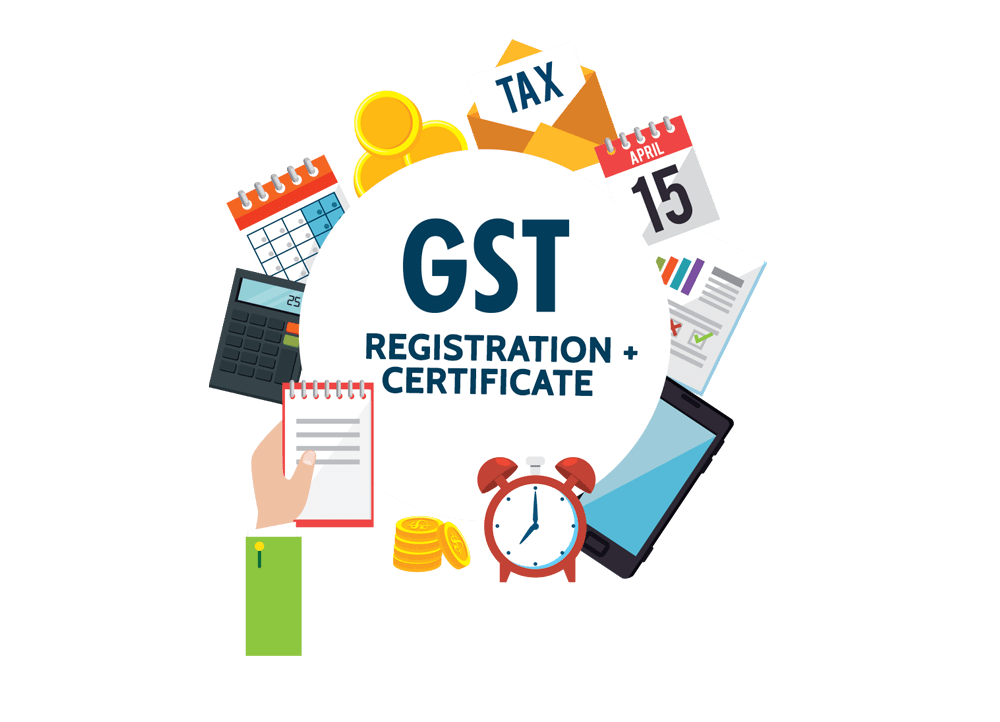How to Find the very best GST Registration Services in Singapore Swiftly
How to Find the very best GST Registration Services in Singapore Swiftly
Blog Article
From Beginning To End: The Ultimate Roadmap to GST Enrollment for Organizations Looking For Financial Stability
Browsing the intricacies of Product and Solutions Tax Obligation (GST) enrollment is a crucial action for companies aiming for financial security. From recognizing the basic principles of GST to abiding by post-registration standards, the process can appear daunting at first glimpse. Nevertheless, breaking down the roadmap right into manageable steps can improve the registration journey for businesses wanting to improve their economic standing. Allow's explore the important parts that compose this best roadmap and discover just how each stage adds to laying a solid structure for financial success.
Understanding GST Basics
Looking into the fundamental principles of Item and Services Tax (GST) is important for gaining a comprehensive understanding of its effects on organizations and the economic situation. GST is a value-added tax obligation imposed on many items and services for domestic usage. It has actually changed numerous indirect tax obligations that existed in the pre-GST era, improving the tax structure and improving ease of doing organization in India. Under the GST system, both products and services are taxed at a specific rate, which is identified based on their category. Organizations are needed to register for GST if their yearly turn over exceeds the threshold limit established by the government. Input Tax Credit Score (ITC) is a significant function of GST, enabling businesses to assert credit report for tax obligations paid on inputs, reducing the overall tax obligation burden. Recognizing the fundamentals of GST is critical for services to conform with tax laws, manage their financial resources effectively, and add to the nation's economic development by participating in a transparent tax system.
Qualification Requirements for Registration
As of the current policies, the threshold restriction for GST enrollment is a yearly aggregate turn over of 40 lakhs for organizations running within a state, except for unique group states where the restriction is 20 lakhs. Furthermore, specific businesses are needed to register for GST irrespective of their turnover, such as interstate providers, informal taxable individuals, and companies liable to pay tax obligation under the reverse fee system. It is vital for services to completely examine their turn over and purchase types to determine their GST registration commitments accurately.
Files Needed for Registration
Having satisfied the eligibility requirements for GST enrollment, services have to currently guarantee they have the requisite papers in area to proceed with the registration procedure effectively. The documents needed for GST enrollment usually include evidence of company constitution, such as partnership act, registration certificate, or incorporation certificate for various kinds of organizations. Additionally, companies need to give files developing the principal area of organization, such as a rental arrangement or electrical power costs.
Step-by-Step Registration Process
Starting the GST enrollment process includes a collection of structured actions to ensure a certified and smooth enrollment for organizations. The very first step is to check out the GST portal and submit the enrollment form with accurate details of business entity. Following this, the applicant receives a Momentary navigate here Reference Number (TRN) which is made use of to resume the application procedure if it's not finished in one go.
Following, all needed papers as per the checklist offered by the GST portal requirement to be uploaded. These papers usually include evidence of service enrollment, address and identity evidence of promoters, financial statements, and organization entity's frying pan card.

Post-Registration Compliance Standards

Conclusion
To conclude, services seeking financial stability needs to recognize the fundamentals of GST, meet qualification criteria, gather necessary records, comply with the step-by-step enrollment process, and comply with post-registration guidelines - Best GST registration services in Singapore. By sticking to these actions, services can make sure conformity with tax regulations and keep financial stability in the future
In addition, certain services are needed to register for GST irrespective of their turnover, such as interstate vendors, casual taxable individuals, and businesses accountable to pay tax under the reverse charge device.Having actually met the eligibility criteria for GST enrollment, services have to see currently ensure they have the requisite records in area to continue with the registration process successfully. The records needed for GST registration usually include proof of business constitution, such as collaboration act, enrollment certification, or unification certification for different kinds of companies. Additionally, businesses need to supply documents developing the major place of service, such as a rental agreement or power expense.Beginning the GST enrollment process involves a series of organized actions to ensure a smooth and compliant enrollment for organizations.
Report this page